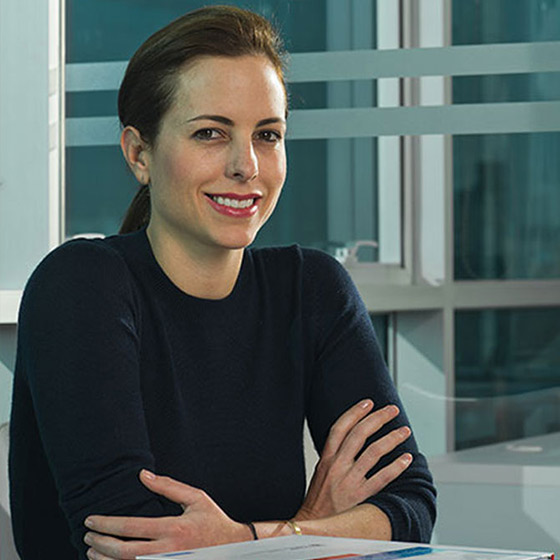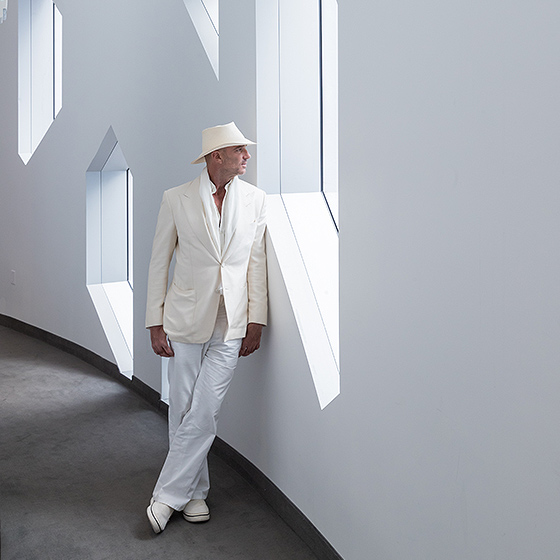
Reetu Gupta hadn’t slept at all. Covid-19 – recently declared a pandemic – was creating intense uncertainty the world over. Occupancy at her family’s chain of hotels across Canada, of which she was the CEO, was in freefall. However, it wasn’t the unprecedented business turmoil that was keeping her awake, as she explained in an early-morning phone call with her younger brother. All that Reetu could think about was how the pandemic was going to affect others,
recalls Suraj Gupta.
She kept saying how there were already so many people suffering in the world, even before the health crisis hit. With things deteriorating so fast, she said we had to think of ways to help. I wasn’t at all surprised by her reaction; trying to assist others and make the world better is just her mentality.
Project kindness
Within a few hours, Project Kindness was born. Its first act of benevolence drew upon the surplus of supplies from the family’s now largely vacant hotels. We had something like 2000 lbs (907kg) of fresh food at our sites that was at risk of going to waste,
explains Reetu. So, we liaised with Canada’s largest hunger relief charity to transfer our inventory to shelters and households in need within 24 hours.

Everyone was just so focused on kindness – it was such a good feeling.
Particularly gratifying to the family was the enthusiastic response of their hotel employees. Our managers and staff were so good about giving back,
Reetu says. Throughout the worst of the crisis, they were coming to me with suggestions such as donating towels to shelters and crates of toiletries to retirement homes. Everyone was just so focused on kindness – it was such a good feeling.
Direct action
Reetu and Suraj knew that there was much more to be done, however. As the pandemic later entered its second year, a huge surge in infections wreaked havoc across India, where their father Steve had been born and raised. In his native state of Punjab, life-saving medical equipment was in critically short supply. It was the last Friday in April and Reetu emailed out a mass appeal to all of our contacts,
Steve Gupta recounts. Within the frst two hours, we had received commitments to contribute $150,000.
Just five days later, a consignment of 300 oxygen concentrators and 1,000 cylinders of oxygen were ready for dispatch. Still, with the pandemic raging, logistics were a significant challenge.
The day we sent the oxygen concentrators, I went to the airport myself to see them off,
says Steve. The carrier didn’t want to take them at first, but I had a few conversations and then watched as they were unloaded from the truck and onto the plane. There are some things I just won’t delegate.
Staff shortages at the destination presented a further obstacle.
What we feared is that the equipment might just keep sitting there on the tarmac, waiting to clear customs
explains Steve. Within 24 hours, though, patients were receiving oxygen from the machines and we felt incredibly relieved and happy. We thank God for making all this happen.
The Guptas’ devotion to improving healthcare goes back long before the COVID pandemic. As his entrepreneurial career blossomed in the mid-1980s, Steve and his wife Rashmi decided to establish their own philanthropic foundation. Among the first beneficiaries were elderly and partially sighted people living around the Punjabi city of Patiala. The eye clinics that the foundation supported performed over ten thousand operations, restoring the sight of those who were otherwise too poor to afford surgery. In addition, The Gupta Family Foundation built a complete general ward with 20 beds in a Patiala hospital.
At one point, I really believed that I was going to have to choose between the family business or philanthropy.
Second nature
As children, we were always completely aware of the work that our parents were doing in India and how important it was,
says Reetu. We didn’t yet know the word ‘philanthropy,’ but giving back and helping others was second nature to our family. As I grew up, I had an increasing desire to do something myself for the world, although I wasn’t sure exactly how it would come about.
Given her strong philanthropic urge, Reetu had a serious concern.
At one point, I really believed that I was going to have to choose one of two paths: the family business or philanthropy,
she remembers. It took me a long time to figure out that it didn’t have to be one or the other. I think it was only when I became CEO of the business that I realized I really could do both.
The gift of education
Having assumed the leadership of the family’s philanthropic efforts, Reetu decided to reimagine how and what they did. In 2020, the organization was then reborn as The Gupta Family Foundation and gained a new mission: equality and empowerment through education and the satisfaction of basic needs.
To mark its new beginnings, the foundation has entered a partnership with another non-profit organization to build solar-powered schools in Africa. For now, the initiative centers around four educational establishments that serve refugee children in Uganda. By using innovative technology, the aim is to enhance the pupils’ learning experience, bringing together philanthropy and sustainability.
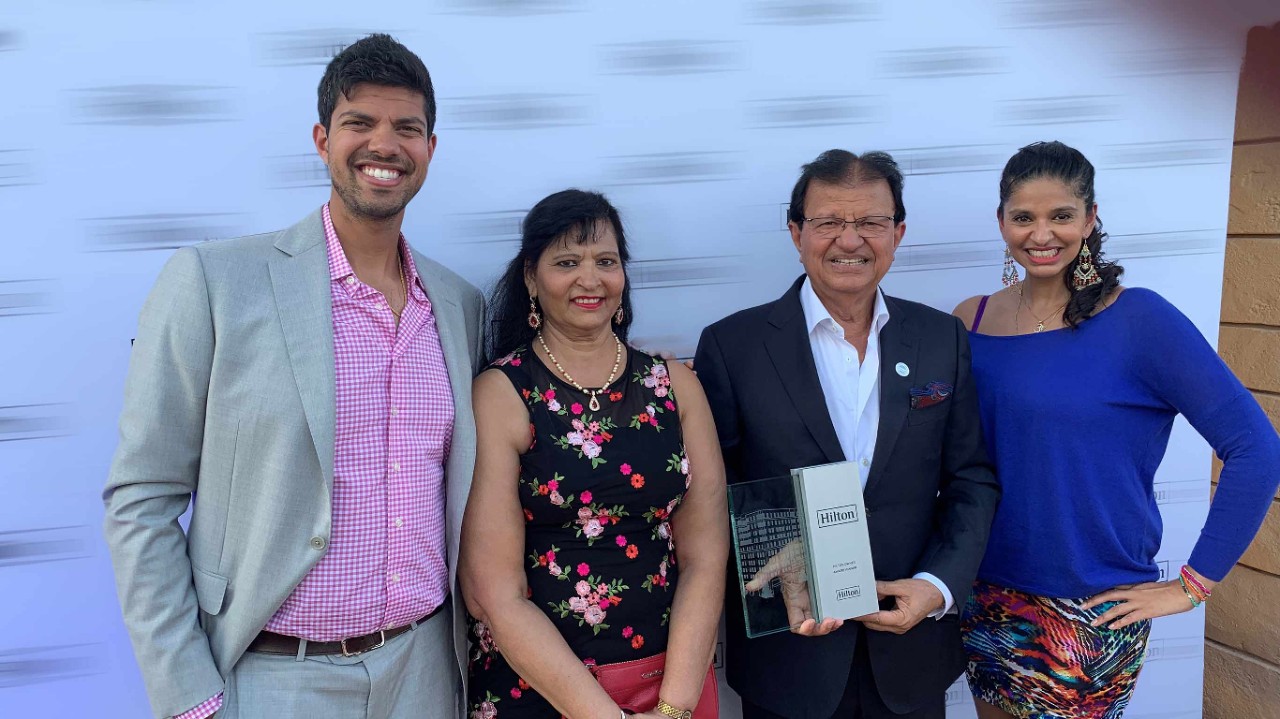
One project involves repurposing shipping containers into solar-powered classrooms,
explains Suraj. These are equipped with laptops so students can access cloud-based materials. Traditionally, they’ve had to rely on paper textbooks which are bulky, expensive and quickly outdated. Meanwhile, the solar power does not only run the classrooms but also creates enough electricity to be sold on to the village. This represents a valuable source of revenue which, in a few years, can go toward building more schools.
While disruptive to education everywhere, the pandemic has proved especially tough for schools in poorer nations. Insufficient technology is a major reason behind this inequity. Remote learning, while not a perfect substitute for in-person tuition, requires sufficient hardware and internet connectivity. The Gupta Family Foundation has thus backed an initiative to supply Android tablets to rural Jamaican children who had been unable to study when schools were closed.
Helping to enhance schools for little kids in developing countries has been one of my lifelong dreams,
says Reetu,
I have always believed with a passion in the value of education. Knowledge is a precious gift that stays with you forever and the more education you have, the more opportunities come your way in life.
For our family, philanthropy is quite simply a way to spread love throughout the world,
she continues,
I think we will always have this view of philanthropy, the embodiment of which is our foundation. It makes me so happy that we are able to do the work that we are doing. Spreading love to the world feels like my soul’s purpose.
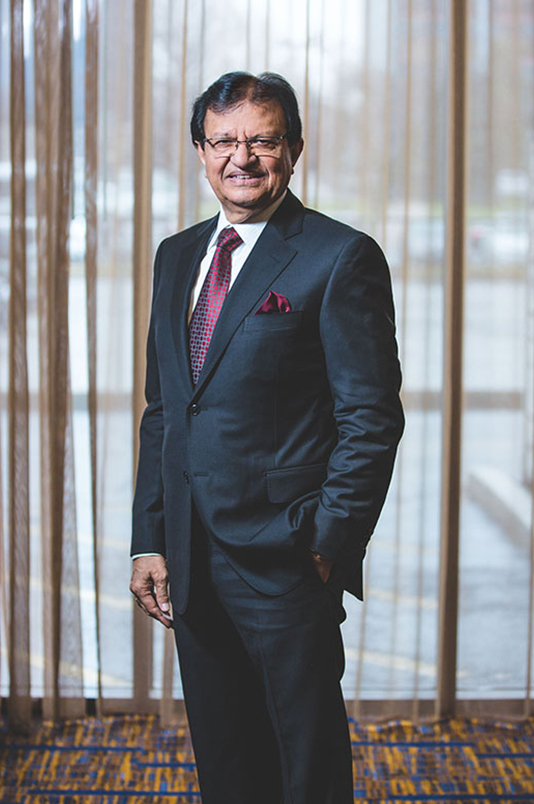
I’ve never followed the crowd – instead, I’ve done things when nobody else was doing them.
Dr. Steve Gupta: Doing things differently
The ambition and energy were there from the start. In his youth, Suresh Gupta loved to picture the luxury hotel that he would build and run one day. Perhaps he’d been inspired by his father whose construction company erected shops, bridges, and even an air base in their native Punjab. When he wasn’t studying, he would busy himself at his father’s office, crafting important letters to government engineering officials. However, upon graduating, he decided against joining the company, much to his dad’s disappointment.
The young man was hardly short of options. So good was his singing voice that he’d been invited for an audition at a major radio organization. Thanks to his head for numbers, he had also achieved one of the highest scores in the fiercely competitive exams covering five Indian states to become a tax inspector. The ensuing promises of fast-tracked promotion weren’t enough to tempt him into this career, though. A visiting uncle suggested that he consider a move to Canada, which was offering visas to those able to speak enough English.
Some friends doubted the wisdom of Suresh’s subsequent decision to emigrate. After all, he had no network to rely upon in that faraway land.
Besides, didn’t he know how unforgiving Canadian winters could be? In 1971, however, Suresh set out on the long journey to Toronto with a little over $100 in his pocket. His aspiration was to work in real estate, but that career required a license that could only be issued after a year’s residency. Instead, he took a job as a life insurance salesman.
Despite his unfamiliar surroundings, Suresh achieved striking success. With a quick scan of the names on the bells outside apartment blocks, he learned to identify the likeliest customers. In his first year, he was the most prolific salesman at his branch, rewarded not only with commission but also a first-class trip to San Diego. He patiently accumulated savings and recycled them into buying and reselling modest apartment buildings in the Greater Toronto Area.
His big break came in 1979. In reply to a local newspaper ad, Suresh got the chance to buy a fuel station and truck stop 60 miles from Toronto. On paper, it was hopelessly beyond his reach. The down payment alone came to 15 times his modest pot of savings. But he audaciously pulled the deal of by remortgaging his apartment and enlisting two partners. There was hidden potential here, Suresh thought.
And his analysis was right. Within a year, he’d doubled the struggling site’s turnover. A streamlined registration process and special fuel discounts helped him win over previously untapped Québécois trucking firms. He even triggered a local referendum to enable the opening of restaurant facilities selling alcohol. His clients loved his enthusiastic commitment, although some struggled to pronounce his name. From then on, Suresh became known as Steve.
The cash pumped out by the service station fueled expansion elsewhere. In the early 1980s, Steve began investing in some of the Toronto apartment blocks whose corridors he’d previously trudged as an insurance salesman. After receiving a midnight phone call, he agreed to buy 2,500 apartments the following day. His overnight due diligence had convinced him the units were worth much more than their $59.7 million price tag. He was right. Just a few months later, he resold them for one-third more.
For all his success with apartments, Steve had never given up his boyhood dream of owning hotels. By the late 1980s, he had developed his first one, repurposing some spare land near his trucking station. His subsequent conversion of a derelict police headquarters into a high-rise hotel did not only prove to be a business triumph but also helped regenerate a neighborhood of Toronto that had seen better days.
Today, the Easton’s Group of Hotels spans 20 properties across eastern Canada which trade under some of the best-known brands in global hospitality and 5 million square feet (464,515 square meters) of residential condos under development in Toronto. Steve’s bold and far-sighted approach was typified by his commitment to a significant expansion during the worst of the global financial crisis of 2008-09. I’ve always believed in doing things differently from everybody else,
he remarks.
I’ve never followed the crowd – instead, I’ve done things when nobody else was doing them.
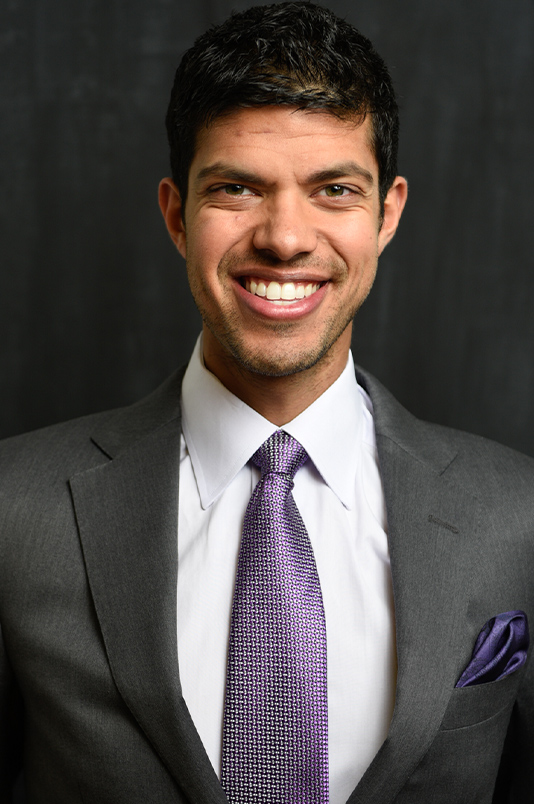
I definitely felt that entrepreneurship and finance were the way forward for me.
We come from a very close-knit family,
says Reetu Gupta. Our parents were always there for us when we were growing up. While Dad was always working very hard, he made sure to see us in the evenings after school, even if it meant he had to continue his work from home.
It was amazing growing up in our household,
Suraj Gupta remembers. I had three elder sisters and the house was always full of people, voices and energy.
Suraj and I were always really close right from the beginning,
recalls Reetu. When he was very little, he would come into my room in the morning as soon as he woke up. I’d take him downstairs and take care of him until breakfast. To this day, we’re still in contact first thing every morning, chattering away via text message.
Of all the siblings, I was the most drawn to the family business. As a young girl, I loved to play office rather than playing house! From high school onwards, I actually started working at the head office and really learned how the hotel business worked. I love the whole concept of hotels, of a home away from home. Perhaps it’s my Indian heritage, as the hospitality there is unlike anything else.
Our parents wanted me to become a corporate lawyer and then work for the family business in that capacity,
claims Suraj. I wasn’t a rebellious type but I always told my dad that I wanted to go another way. I didn’t share Reetu’s passion for hotels and real estate; however, I always had a natural ability for numbers, so I decided to start my career on the trading floor of a major bank. I definitely felt that entrepreneurship and finance were the way forward for me.
Suraj and I both knew that we’d do business together one day,
says Reetu. Being the older of the two, I just had to wait until he’d finished his MBA. We’d had a long-standing joke that we’d ‘go rogue’ by breaking away from the family business and starting something ourselves. And that’s how we chose the name of the company that we eventually started together: Rogue Insight Capital.
Rogue started out as a venture capital organization and quickly expanded to several asset classes,
says Suraj, who serves as CEO and president. We focus on early-stage companies and our primary mandates include investing in female, immigrant and visible minority founders as well as companies that have a social impact on their communities. If a company is going to succeed in today’s diverse society, it needs diverse people running it.
Through Rogue, we have also invested in private and public equity around the world, real estate outside of Canada, and sports teams,
continues Suraj. We’ve invested in some terrific young businesses, including a clean tech company whose technology recycles Styrofoam. Originally, we went out looking for opportunities, but we now see strong inbound deal flow thanks to recommendations we receive from partners, contacts and cold calls.
I never considered myself the ‘next generation’ leader of the family business, even though that’s technically what I am
Reetu admits. We’ve always worked so closely with my parents, so I’ve never distinguished between the generations – I just see one family and one business. The portrayal of family businesses you often see on TV – with all the drama and politics – couldn’t be further from our reality.
Our mother has been a huge inspiration to me all my life. She is such a strong woman and gave me the confidence to progress to becoming CEO. She has incredible foresight; we always seek out her perspective before an important decision. She just quietly gives us advice but makes it clear that it is up to us. Although I am technically the CEO and my dad is technically the chairman, we all agree without a shadow of a doubt that Mom is the real boss!

